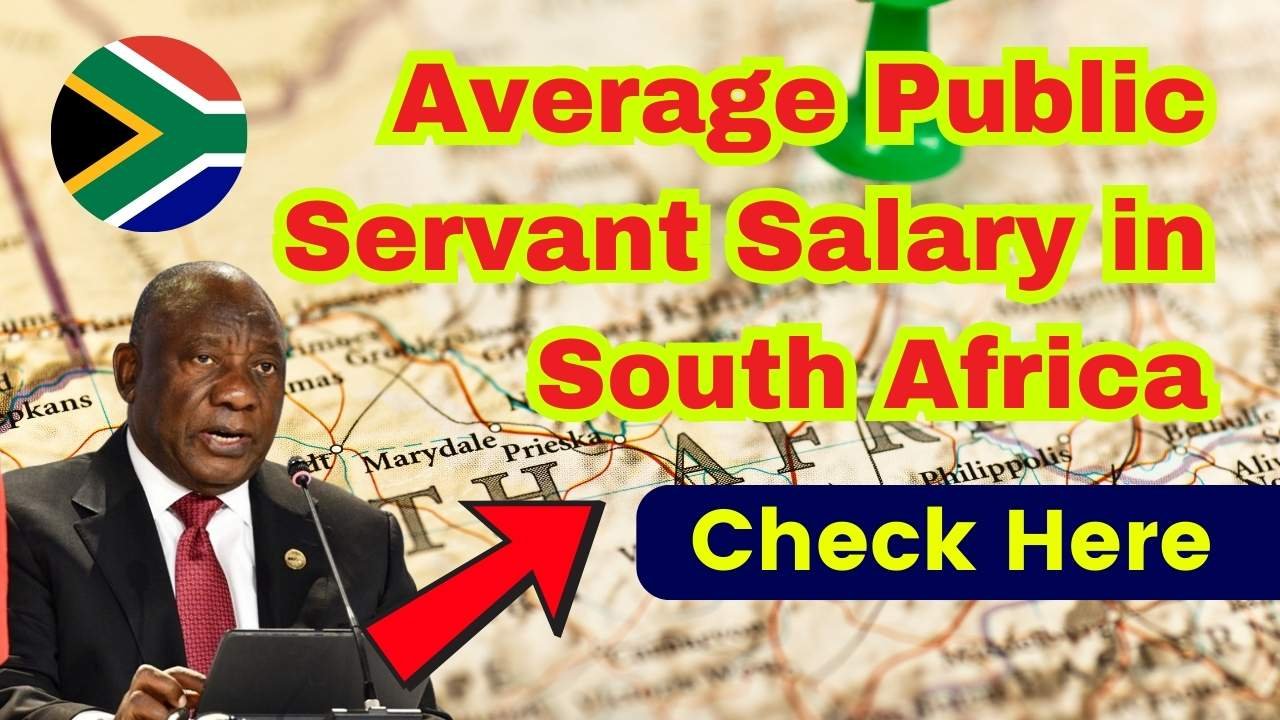How Much Do Public Servants Get Paid in South Africa? For many South Africans, working in the public sector is not just a job — it’s a career for life with stability, benefits and growth opportunities. Whether you’re looking for a government job or just curious about how much public servants get paid, this post has got you covered.
Let’s get into the numbers and stories.
Quick Facts
| Feature | Details |
|---|---|
| Average Annual Salary (2024) | R457,209 (~R38,100/month) |
| Entry-Level Pay | R103,562/year |
| Senior-Level Pay | Over R1 million/year |
| Latest Increase | 7.5% in 2023; Proposed 4.7% for 2024 |
| Future Outlook | Tied to inflation, budget planning, and union negotiations |
| Official Resource | Department of Public Service and Administration (DPSA) |
What Is the Average Public Servant Salary?
As of 2024 the average public servant salary in South Africa is around R457,209 per year , which is roughly R38,100 per month .
Of course this varies widely depending on your role, experience and where you work. For example:
- Entry-level employees can expect to earn around R103,562 per year
- Mid-level professionals may earn R281,418 per year
- Senior executives and top officials earn over R1 million a year
Public service jobs span across various departments — from health and education to administration and security — each with its own salary structure.
How Has Public Servant Pay Changed Over Time?
The public servant salary landscape has changed a lot over the past two decades.
From 2006 to 2018 – A Period of Strong Growth
Between 2006 and 2018 government spending on public servant salaries grew from R154 billion to R518 billion .
This was driven by above-inflation increases negotiated through unions to improve living standards for government workers.
But this rapid growth also put pressure on national budgets so more cautious planning in recent years.
Recent Salary Adjustments
In the last couple of years salary increases have been more measured:
- 2023 : Public servants got a 7.5% salary increase from April 1
- 2024 : A proposed 4.7% increase from April 2024
These increases are to keep pace with inflation while balancing the country’s books.
Public vs Private Sector Pay
While some private sector roles offer higher base salaries, public sector jobs often have better job security , benefits and long-term growth .
Health and Education:
Nurses, teachers and social workers often find similar salaries in both sectors but public sector has greater job stability and clear career paths .
Administrative and Security:
Clerks, officers and guards typically get better pension schemes and health benefits in the public sector.
Career Progression in the Public Sector
One of the benefits of working in government is the ability to grow within the system.
Here’s a general progression:
- Entry-Level : Starting point with basic training and foundation experience.
- Mid-Level : Several years of experience or specialized qualifications.
- Senior/Executive Level : Highest salaries, often requires leadership skills and advanced degrees.
Further education or certifications can get you promoted and into higher salary bands.
Benefits Beyond the Paycheck
Government jobs aren’t just about salary — they come with a lot of extras:
- Pension Plans : Long term financial security after retirement
- Healthcare Coverage : Medical aid options
- Housing Allowances : Available in some roles especially those that involve relocation
- Paid Leave and Job Stability : Predictable schedules and strong labour laws
These are some of the reasons why public sector is attractive to many South Africans.
Challenges Facing Public Servants
Despite the positives there are also challenges:
- Budget Constraints : Can limit raises and bonuses
- Workload Pressures : Staff shortages sometimes means more responsibilities
- Job Security Concerns : Economic downturns can lead to hiring freezes or retrenchments
We need to keep talking to government leaders, unions and employees to address these issues.
Future Outlook for Public Servant Salaries
Going forward salary changes will depend on:
- Inflation Rates : Increases will match or slightly exceed inflation
- Union Negotiations : Will continue to influence wage policies
- Economic Conditions : Government must balance fair pay with fiscal responsibility
We want to ensure public servants get fair pay without breaking the bank.
Why Public Sector Pay Matters to the Economy
Public servant salaries make up a big chunk of government spending and is important to local economies — especially in towns where government is a major employer.
Higher wages means more spending power which supports businesses and drives economic activity across the country.
Frequently Asked Questions
What is the average salary of a public servant in South Africa?
R457,209 per year or R38,100 per month .
Are public servant salaries increasing in 2024?
Yes, a 4.7% increase from April 2024, after a 7.5% increase in 2023 .
What benefits do public servants get besides salary?
Pensions, health coverage, housing allowances and paid leave.
How does public sector pay compare to private sector?
Some private roles pay more but public sector offers more stability and better benefits .
✅ Conclusion
Being a public servant in South Africa is not just about the paycheck — it’s about serving your community, building a career and getting real benefits.
Salary increases are based on economic conditions and policy but public sector is a good option for many.
Whether you’re new or looking to move up, know your salary.
